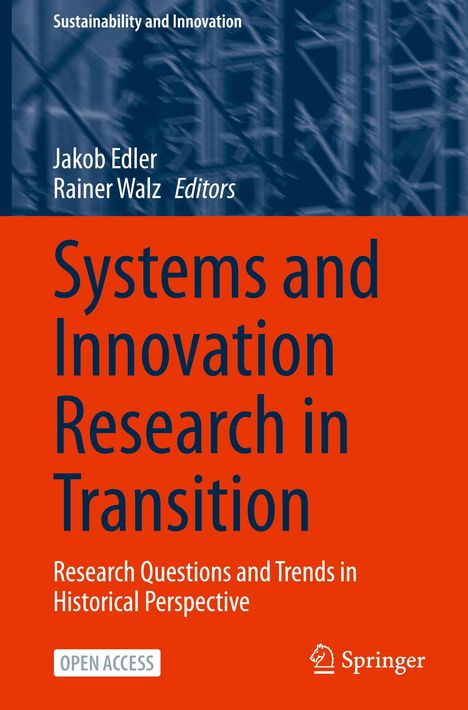Systems and Innovation Research in Transition, Gebunden
Systems and Innovation Research in Transition
- Research Questions and Trends in Historical Perspective
(soweit verfügbar beim Lieferanten)
- Herausgeber:
- Rainer Walz, Jakob Edler
- Verlag:
- Springer Nature Switzerland, 09/2024
- Einband:
- Gebunden, HC runder Rücken kaschiert
- Sprache:
- Englisch
- ISBN-13:
- 9783031660993
- Artikelnummer:
- 11977811
- Umfang:
- 348 Seiten
- Nummer der Auflage:
- 2024
- Ausgabe:
- 2024
- Gewicht:
- 688 g
- Maße:
- 241 x 160 mm
- Stärke:
- 25 mm
- Erscheinungstermin:
- 26.9.2024
- Hinweis
-
Achtung: Artikel ist nicht in deutscher Sprache!
Klappentext
In the last decades it has become more and more imperative for our societies, and for decision makers in all areas of society, to understand the dynamics through which innovation systems develop and through which socio-technical systems transform themselves. As both innovation and transformation are strongly intertwined, it has equally become imperative to analyse their dynamics as well as their interplay.
This open access volume reflects on the research fields that have developed in the last five decades to do exactly that. It defines and delineates research on systems and innovation as encompassing the scientific study of, first, the conditions, dynamics and impacts associated with the generation and uptake of innovations and, second, the development and transformation of functional systems satisfying essential needs such as the provision of energy or water. Further, the area of Systems and Innovation Research (SIR) is characterised by problem and stakeholder oriented research. We chose five decades as time frame because we noted that roughly 50 years ago a number of research institutes dedicated to SIR were founded and the SIR area started to grow significantly. We present a systematic history of nine selected fields within the area of SIR (Innovation policy, Innovation indicators, Foresight, Policy Evaluation, Technology Assessment, Production Paradigms, Renewable Energies, Energy Efficiency, Water Use). We also present a conceptual framework to understand the processes by which the research fields have developed.
This allows to draw general lessons as to what drives fields throughout their development and how their role vis-à-vis policy, businesses and societies changes over time. It also allows to speculate about future challenges and trends in the SIR area. This is important because, if anything, the need to govern transformation through innovation will further grow in the future, and with it the need to understand the underlying dynamics.

